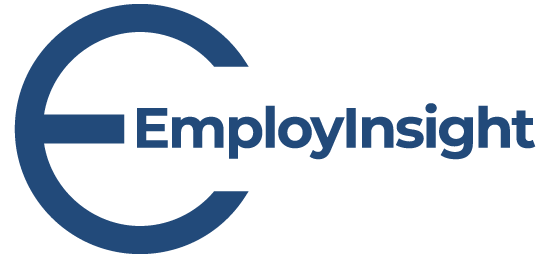In today’s dynamic and often unpredictable business landscape, resilience is no longer a desirable trait – it’s a necessity. Companies that weather economic storms, navigate evolving regulations, and maintain a strong reputation are those that prioritise a foundation built on integrity and ethical practices. While many factors contribute to such resilience, one often-overlooked element is the power of ethical hiring. Investing in the right people, individuals who align with your company’s values and demonstrate inherent integrity, isn’t just a feel-good initiative; it’s a strategic move that yields significant returns, particularly in the realm of fraud prevention.
The cost of fraud can be staggering. Beyond the direct financial losses, businesses face reputational damage, legal fees, decreased employee morale, and a loss of customer trust. KPMG’s 2022 Global Fraud Survey revealed that a significant percentage of organisations had experienced fraud, with insider fraud being a persistent threat. While sophisticated security systems and robust internal controls are crucial defences, they can be undermined if the very individuals within the organisation lack ethical grounding.
Advantages of Ethical Hiring
This is where the strategic advantage of ethical hiring comes into play. By proactively seeking out and recruiting individuals with a strong moral compass, businesses can significantly mitigate the risk of fraudulent activities. This isn’t about relying on gut feeling or superficial assessments; it’s about implementing a rigorous and values-driven hiring process that delves deeper than just skills and experience.

So, how does ethical hiring translate into a tangible return on investment (ROI) in fraud prevention? Let’s break down the key benefits:
Benefit Category | Description | Impact on Fraud Prevention | Potential ROI Metrics |
Reduced Incidence of Internal Fraud | Hiring individuals with a strong ethical compass directly lowers the likelihood of employees engaging in fraudulent activities like theft, embezzlement, or data breaches. | Acts as a primary preventative measure, building a “human firewall” against internal threats. | A decrease in reported fraud incidents and a reduction in the value of losses due to internal fraud. |
Lower Investigation & Remediation Costs | Fewer instances of fraud translate to reduced expenses associated with investigations, legal proceedings, and implementing corrective actions. | Minimises the financial burden and operational disruptions caused by dealing with the aftermath of fraudulent activities. | Reduction in legal fees, investigation costs, and time spent on fraud-related issues. |
Enhanced Compliance & Regulatory Adherence | Ethical employees are more likely to understand and follow company policies, industry regulations, and legal requirements, minimising the risk of costly non-compliance. | Fosters a culture of compliance, making it easier to navigate complex regulatory landscapes and avoid penalties. | Fewer regulatory fines, reduced legal risks associated with non-compliance. |
Improved Employee Morale & Productivity | A workplace built on trust and integrity fosters a more positive, engaged, and collaborative environment, leading to higher morale and productivity. | Indirectly reduces the likelihood of fraud by creating a healthy organisational culture where unethical behaviour is less tolerated and more likely to be reported. | Increased employee satisfaction scores, lower employee turnover rates, and higher productivity levels. |
Strengthened Reputation & Stakeholder Trust | A commitment to ethical hiring signals a dedication to integrity, enhancing public perception, customer trust, and relationships with investors and partners. | Protects the company’s most valuable asset – its reputation – which can be severely damaged by ethical breaches and fraudulent activities. | Positive brand perception metrics, increased customer loyalty, and stronger investor confidence. |
Proactive Risk Management | Embedding ethical considerations into the hiring process is a proactive measure to build a workforce less susceptible to unethical temptations and pressures. | Prevents potential problems before they arise, saving the organisation from significant financial and reputational risks in the long run. | Fewer potential fraud vulnerabilities identified during audits, lower overall risk profile. |
Attraction of Like-Minded Talent | A company known for its ethical culture attracts other ethical and high-calibre individuals, creating a virtuous cycle that further strengthens the company’s ethical foundation. | Builds a workforce with a shared commitment to integrity, making unethical behaviour less likely and reinforcing a culture of trust. | Higher quality of job applicants, lower time-to-hire for ethical candidates, and increased retention of high-integrity employees. |
In conclusion, the ROI of ethical hiring extends far beyond simply filling vacant positions. It’s a strategic investment in building a resilient organisation with a strong ethical core. By prioritising integrity in the recruitment process, businesses can significantly reduce the risk of fraud, lower associated costs, enhance compliance, boost employee morale, strengthen their reputation, proactively manage risks, and attract top talent. In an era where trust and integrity are increasingly valued, ethical hiring is not just the right thing to do – it’s the smart thing to do for long-term success and sustainability.

EmployInsight understands the critical link between ethical hiring and organisational resilience. We partner with businesses committed to strong ethics and integrity, providing tailored solutions to identify and attract talent that aligns with their values. Our comprehensive suite of services helps you build a workforce you can trust, fostering a trustworthy work environment and ultimately safeguarding your bottom line against the costly impact of fraud. Let us help you invest in the right people and reap the significant rewards of an ethically grounded organisation. Get in touch with us today; request a quote or book a needs assessment. Ensure you hire the right candidate the first time, every time, or risk regretting it later. It’s simple.

